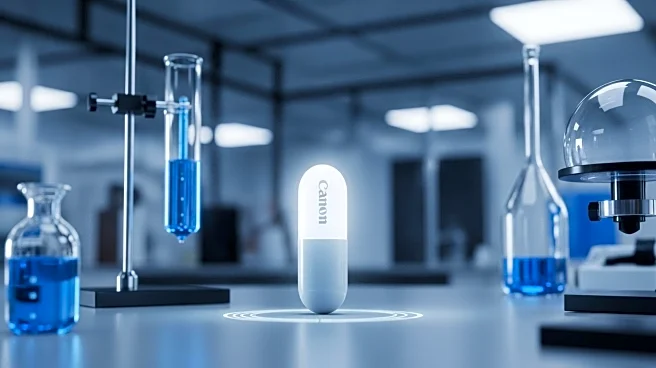What is the story about?
What's Happening?
Aardvark Therapeutics is making significant strides in the obesity and metabolic disease treatment market with its innovative approach targeting the gut-brain axis. The company is developing first-in-class TAS2R agonists and a novel GLP-1 enhancer, ARD-201, to address challenges such as post-treatment weight regain and long-term adherence. Aardvark's lead candidate, ARD-101, is a small-molecule agonist of bitter taste receptors expressed in the gut, which stimulates the release of hormones that signal satiety and suppress hunger. This mechanism avoids common side effects associated with GLP-1 receptor agonists, such as nausea and diarrhea. ARD-101 has shown promising results in Phase II trials, demonstrating significant reductions in hunger ratings and hyperphagia in patients with Prader-Willi Syndrome. Additionally, ARD-201 combines ARD-101 with a DPP4 inhibitor to prevent GLP-1 degradation, showing potential in preclinical trials to reduce body weight and prevent weight rebound.
Why It's Important?
The development of Aardvark Therapeutics' gut-brain signaling therapies represents a potential breakthrough in the obesity treatment market, which is projected to reach $60.53 billion by 2030. The company's approach offers a differentiated value proposition by addressing unmet needs such as gastrointestinal intolerance and post-treatment weight regain. With GLP-1 receptor agonists dominating the market, Aardvark's therapies could attract patients who discontinue these treatments due to side effects. Furthermore, the company's financial resilience, with $141.8 million in cash to fund operations through 2027, positions it well to advance its pipeline and expand into new trials. The potential approval of ARD-201 as a GLP-1 enhancer could significantly impact the market, offering a complementary therapy for existing users and a standalone solution for those unable to tolerate current treatments.
What's Next?
Aardvark Therapeutics is advancing ARD-201 into two Phase 2 trials: the POWER Trial, which evaluates its ability to prevent weight regain in patients discontinuing GLP-1RA therapy, and the STRENGTH Trial, which assesses weight loss as a monotherapy and in combination with GLP-1RAs. These trials aim to establish ARD-201 as both a complementary therapy and a standalone solution. The company is also expanding its commercial potential by launching the HERO trial, a Phase 3 trial for ARD-101 in treating hyperphagia in Prader-Willi Syndrome. As the obesity market evolves, Aardvark's gut-brain signaling approach could become a cornerstone of next-generation metabolic disease management.
Beyond the Headlines
Aardvark Therapeutics faces challenges from established players like Eli Lilly and Novo Nordisk, who continue to innovate in the obesity treatment space. However, Aardvark's first-mover advantage in clinical development and its unique mechanism strengthen its differentiation. The company's focus on rare diseases like Prader-Willi Syndrome and its strategic expansion into pediatric trials highlight its commitment to addressing unmet needs. As academic research on TAS2R receptors progresses, potential competition may arise, but Aardvark's positive Phase II data and financial stability position it well to navigate these challenges.















